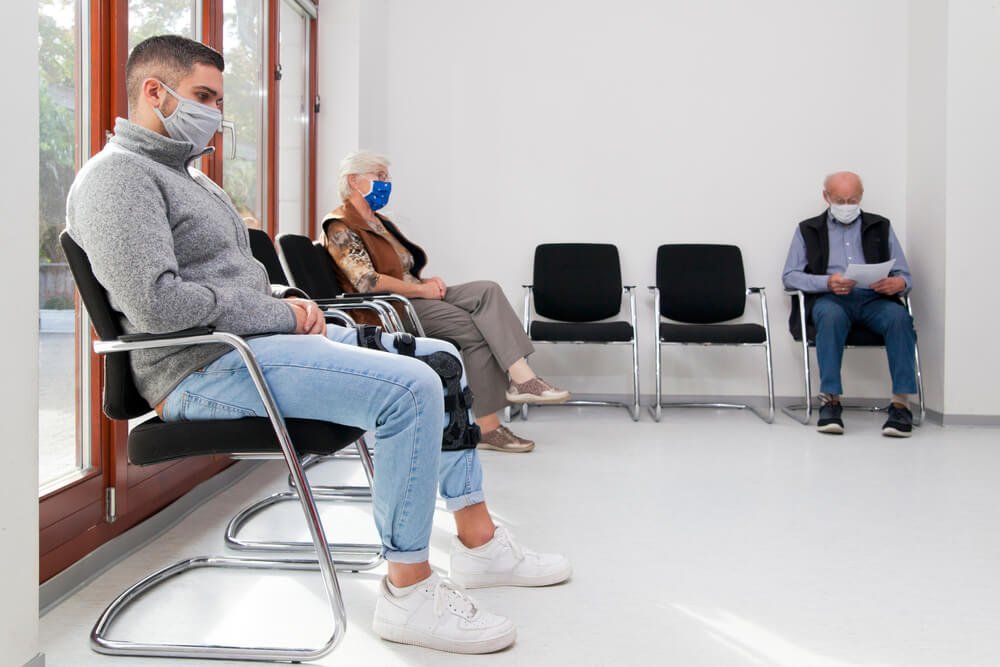NeuroStar® TMS Therapy
FDA-cleared, non-medication depression treatment
Existing Patients For Providers →
(855) 940-4867

You've hit middle age and feel like you're in a rut. Maybe some setbacks have piled up and chronic aches are slowing you down. The hope, excitement, and drive of your youth have faded, and you're in a consistent state of disappointment. This may sound like a midlife crisis—just another stage of life, like adolescence or old age. But it could be more than that. You may be experiencing depression, which is a medical condition that needs to be treated.
Descriptions of the existential challenges of mid life have existed for centuries, but the phenomenon of the mid life crisis was academically introduced as recently as 1957. Then popular books such as Gail Sheehy's Passages: Predictable Crises of Adult Life made it a household phrase in the 1970s. The midlife crisis has become part of our cultural consciousness because "middle age" is often a period in people's lives when they are likely to face stressful changes in their relationships and other major life events. Their children, the focus of their love and attention for so many years, have grown up and left. Their parents have aged, and they may need to take care of them. Their work demands have hovered near the red zone for years. Their stamina isn't what it used to be, and once-easy tasks have become more burdensome.
Any of these circumstances can make it harder to feel happy, but they could also trigger depression. While a mid life crisis can be a normal state of development, depression is not. It's important to remember that depression is not simply a catch-all term for feeling sad. Depression is associated with changes in chemicals in the brain that regulate signaling and moods—and it's a medically recognized condition that requires treatment.
As the term "midlife crisis" gained notoriety, scientists began to investigate whether depression might be caused by middle-age physiological changes in the body that show up in different ways in women and men. Ever hear the term "male menopause"? But research has not shown that these biological changes are a cause of depression (though some of them can contribute to depression). More likely, a variety or combination of factors in midlife, both emotional and physiological, may cause depression. Still, it's necessary to acknowledge that midlife depression is not a universal experience, and it should not be considered normal or expected. Therefore, it's important to recognize the symptoms of midlife depression—especially because different symptoms can appear in different people. Here's a list to keep an eye on:
These unhealthy changes, along with stress, can cause a wide range of physical ailments, including backaches, headaches, fatigue, stomach problems, and sexual dysfunction. Mentally, those with depression can have difficulty focusing, remembering things, and making decisions. Some of those clichéd midlife crisis behaviors—buying a flashy sports car or having an affair—may be the result of feeling worthless or withdrawn from relationships, among other symptoms of depression.
If you are between your late 30s and early 50s and experiencing any of the symptoms above, don't shrug it off as "just a midlife crisis." Depression is not an inevitable part of middle age; many in their 40s, 50s, and beyond acclimate to life changes and continue to enjoy good physical and mental health. Depression is a condition, like any condition at any age, that can detract from quality of life for you and your loved ones. According to current research, two-thirds of people with depression don't seek or get treatment. Many people have effectively treated depression with therapy and medications. If those haven't worked for you, though, there are other options to try, such as Transcranial Magnetic Stimulation (TMS). TMS is an FDA-cleared non-invasive and drug-free treatment. In a private treatment room, you sit in a comfortable chair, awake and alert, while a device near your scalp delivers gentle magnetic pulses, similar to those in an MRI scan. These pulses stimulate changes in brain chemical signaling that can alleviate symptoms of Major Depressive Disorder. You can drive yourself home or back to work afterward. Whatever path you choose, make sure to consult your doctor and get the help you deserve. Your life isn't half over when you reach middle age. You have plenty ahead of you, and with treatment for depression, you can find relief from your symptoms and make your best memories yet.
Take our short quiz to see if TMS therapy or nasal esketamine could be right for you
Subscribe for mental health, self-care, and TMS therapy and nasal esketamine updates for those affected by treatment-resistant depression or OCD.
Thank you for subscribing to our email list!
Oops, there was an error adding your subscription.
Please try again later.
By providing your email address, you are consenting to receive blog updates from Greenbrook TMS Inc. You may unsubscribe from these alerts at any time by following the “unsubscribe” link at the bottom of email alerts. At Greenbrook TMS Inc. we take the privacy and security of your personal information seriously. To learn more about how we protect your personal information, please refer to our Privacy Policy.


Greenbrook supports an accessible internet. If you have any questions about our accessibility features, please contact us at
(855) 940-4867 or info@greenbrooktms.com.
All Rights Reserved | Greenbrook TMS NeuroHealth Centers.